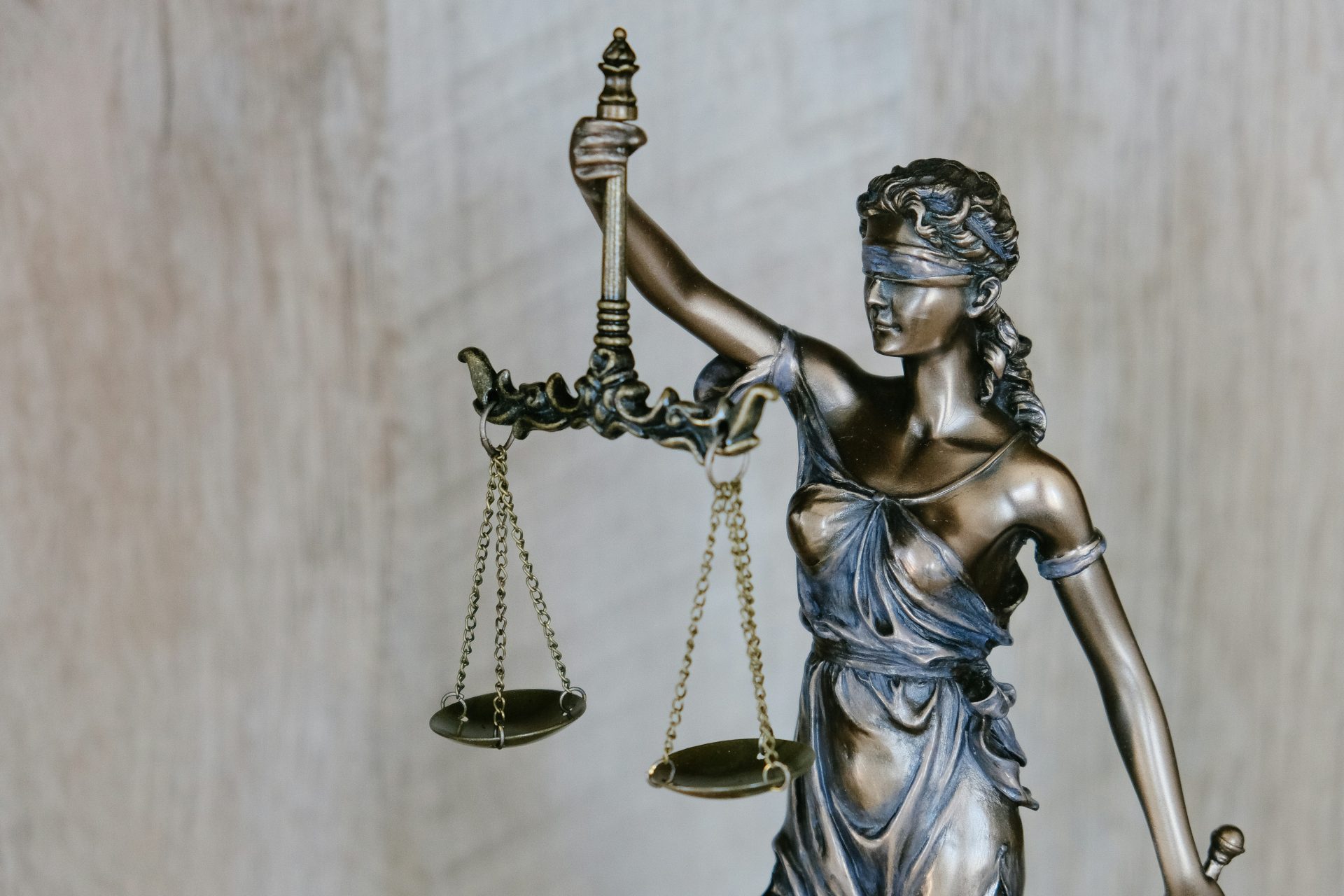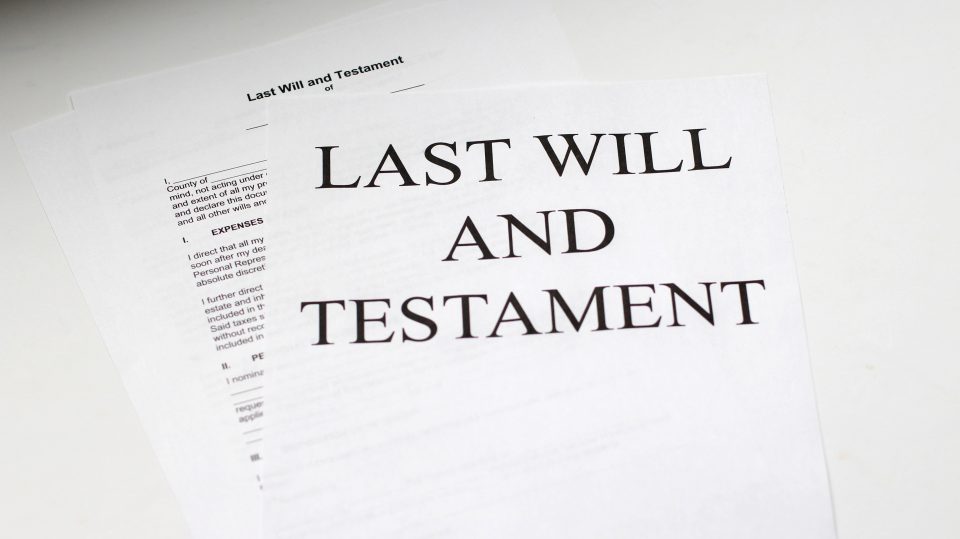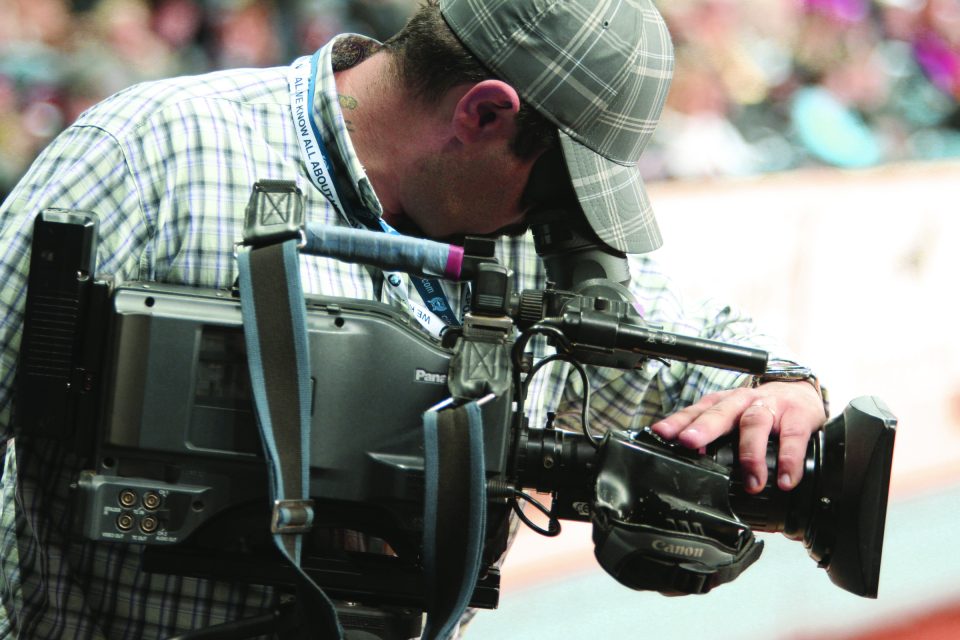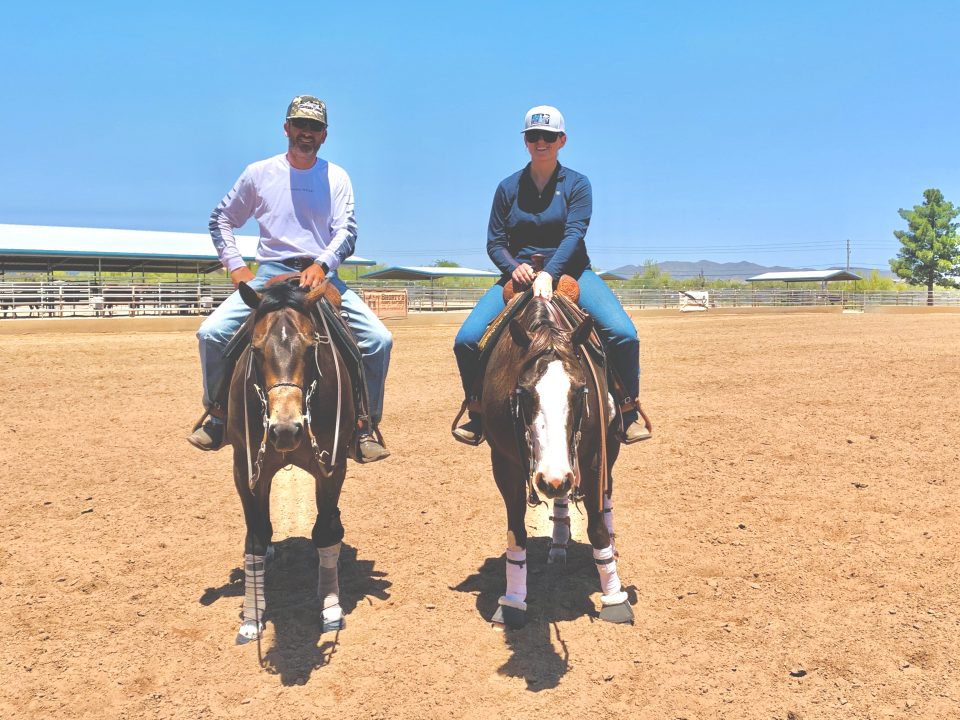As the reining industry grows and expands into new territory, as a professional, you might find yourself the subject of rumors and negative remarks. When do you have a case for defamation, and when should you just ride it out?
By Kristin Pitzer

Participate in a competitive environment long enough, and it’s quite likely that at some point in time, you’ll hear your name mentioned in a negative light. This is true even in the horse world, thanks to horse-show gossip, social media, and the ability of anybody to post online reviews about anything.
Whether your name becomes involved because a customer misunderstood expectations, a video of your riding was taken out of context, or the sale of a horse went awry, you might be tempted to strike back with a slander or libel court case. But it’s challenging to prove defamation, said Jordan Willette, an attorney and reiner based in Phoenix and San Francisco. As the onus is on the person who feels they’re defamed to prove it, these cases are often tricky and not always clearcut.
What Is Defamation?
When people hear or see someone making unpleasant statements about them publicly, they often jump to threatening to sue for libel (written) or slander (spoken). However, certain elements must be in place for a defamation lawsuit to happen, Willette says. For one, the person must be making a statement of fact, not opinion, and the statement must be false and told or published to a third party. Separating a statement of opinion from a fact can be one of the hardest parts of determining whether you have a case for defamation.
“Let’s say it comes out that somebody is treating horses poorly,” Willete says. “That can be an opinion based on somebody’s individual definition because non-horse people, for instance, don’t understand different horse-training techniques, or some people may just think the training method is not appropriate for the horse. At the end of the day, abuse, because of the strong nature of the language, isn’t necessarily an opinion statement. It’s going to be considered fact.”
From there, you must be able to prove damages to your business or reputation were caused by the untrue statement. Did you lose wages or future earning capacity due to the statement that was made? If all of those elements are in place, you may have a case against the speaker. If a single one is missing, it is not classified as defamation.
Just Because It’s Unkind, Doesn’t Mean It’s Defamatory
The horse world is full of opinions about everything — training, blanketing, hoof care, etc. Because of that, it’s highly likely that at some point, you’ll run into a person who disagrees with how you operate. If things escalate and they post their opinions about your practices publicly, you might wish to retaliate; however, because statements of opinion are not defamatory, you won’t have much of a leg to stand on.
This applies whether the person making the statements is a stranger or someone with whom you have a business relationship. For example, if a former client, due to a misunderstanding, feels they were wronged and blasts you on social media, you might think a defamatory lawsuit is in order. However, unless what they’re posting is blatantly false and presented as a fact about your business, the customer is legally entitled to their viewpoint.
“In a client-misunderstanding situation, it may be their opinion they are telling people, which can be a little bit of an issue,” Willette says. “If what they’re saying is an outright lie, having agreements and conversations in writing will protect you in the long run.
“If you suffer any damages, like customers are leaving or you’re not receiving more training inquiries, then there might be legal action,” Willette continues. “By having agreements and conversations in writing, it helps support a case of defamation by proving it was a false statement. Still, these types of cases are very hard to win in a legal proceeding.”
Whether it’s a quick text, an email, or a formal letter, always follow up client conversations with a summary in writing. That way, if a relationship does deteriorate, you’ll have a paper trail to protect you.
Set Yourself Up for Success
If someone has a bad opinion of you, there’s not much to stop them from talking about it. The best thing you can do to protect yourself is to avoid situations that cast you in a negative light in the first place and always conduct yourself professionally.
“Any time you’re in public, you need to realize that somebody may have a camera and could video what you’re doing,” Willette says. “You have to put your best foot forward when you’re in public situations, such as at horse shows. Realize it’s not necessarily the horse people you have to worry about; sometimes, it’s the non-horse people who don’t always understand what they’re looking at.”
Transparency goes a long way in protecting your reputation. If you’re selling a horse, for instance, be as open as possible with potential buyers. One way to do that is by suggesting they drug test the horse during the prepurchase exam. That way, if the sale goes wrong after the new owner brings the horse home, you can point back to those records.
“Recommend [a drug test] and then have it on a disclaimer, such as the sales contract,” Willette says. “If someone buys a horse that goes lame shortly after the sale is completed and the new owner had the prepurchase done, the vet will have evaluated the horse and said there were no present injuries. This makes it easier to prove truth versus opinion. So, if people are saying you sold a bad horse, that’s false, and you can prove that it’s false.”
Though it’s often hard to prove, defamation is generally black or white, Willette says. Unless specific criteria are met, you won’t have a solid case against someone just because they’re speaking negatively about you. The best way to avoid becoming the subject of unfounded rumormongering is to let your good character speak for itself and to summarize conversations with clients and potential clients in writing.
“We’re all going to have this happen to us at some point, especially in the horse world where everyone has a different opinion,” Willette says. “Just remember that you have to be careful what type of training you’re doing when you’re at a horse show and mind your reputation. Nobody thinks it is going to happen to them, but in case it does, you don’t want to find yourself up a creek without a paddle.”



